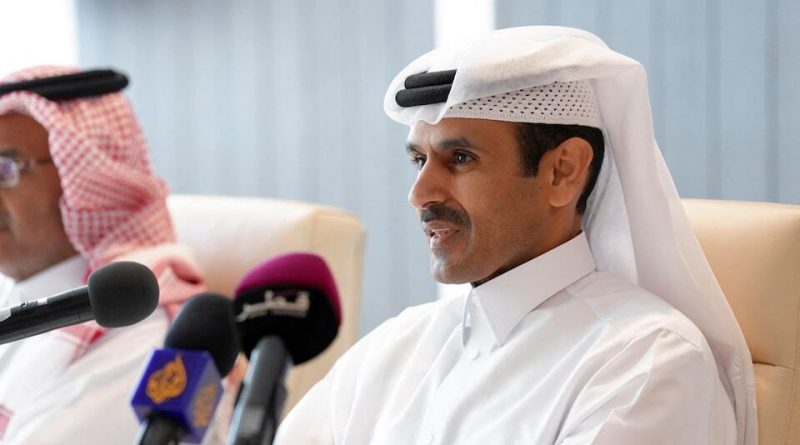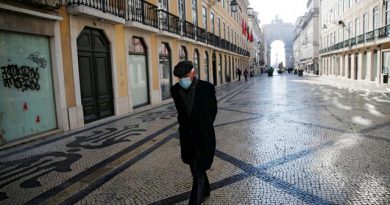Qatar Calls for Balanced EU Energy Policy to Strengthen Global Partnerships and Ensure Energy Security
Qatar’s Energy Minister Saad Al-Kaabi emphasizes collaboration and mutual understanding between Qatar and the European Union, urging constructive dialogue to secure sustainable energy supply, promote global competitiveness, and protect consumer interests
Qatar’s Minister of Energy and CEO of QatarEnergy, Saad Al-Kaabi, has reaffirmed his country’s unwavering commitment to supporting Europe’s energy security while calling for constructive engagement with the European Union to ensure that new corporate sustainability rules foster cooperation, not barriers.
His message comes as part of a broader appeal for balanced policies that align environmental responsibility with economic and energy stability.
Speaking to Reuters on Thursday, Al-Kaabi highlighted the need for clear and fair regulations that strengthen energy partnerships and safeguard the flow of liquefied natural gas (LNG) — a critical resource for Europe’s transition away from Russian energy dependency.
“Our goal is not confrontation but cooperation,” Al-Kaabi said.
“Qatar wants to remain a trusted, long-term energy partner for Europe, ensuring reliable and cleaner energy for millions of people.”
A Trusted Energy Partner for Europe
Since Russia’s invasion of Ukraine in 2022, Qatar has played a key role in stabilizing Europe’s energy supply, providing between 12% and 14% of the continent’s LNG.
Through long-term contracts with global giants such as Shell, TotalEnergies, and ENI, Qatar has proven its reliability and strategic importance to the European energy landscape.
“Europe has always been an important partner for Qatar,” Al-Kaabi noted. “Our cooperation is based on shared goals — energy security, affordability, and sustainability. We want to see Europe thrive economically and environmentally, and that requires mutual understanding.”
Qatar’s efforts to expand its LNG capacity are part of its broader commitment to the global energy transition. Through cleaner technologies and lower emissions in production, QatarEnergy is helping bridge the gap between today’s energy demands and tomorrow’s sustainable goals.
Constructive Dialogue Over Restrictions
Al-Kaabi’s recent remarks came in response to the European Union’s Corporate Sustainability Due Diligence Directive (CSDDD), a law designed to ensure companies operating in the EU monitor their supply chains for environmental and human rights compliance.
While Qatar supports global sustainability efforts, Al-Kaabi expressed concern that certain elements of the directive could unintentionally discourage international cooperation and investment.
“The proposed penalties and regulations could make it extremely difficult for global energy companies like QatarEnergy to operate within the EU,” he explained.
“This is not about rejecting sustainability — it’s about ensuring that the rules are practical, balanced, and promote collaboration rather than isolation.”
The law allows for fines of up to 5% of global revenue for companies that fail to align their climate transition plans with the Paris Agreement.
Al-Kaabi believes that such measures, if not refined, may discourage essential energy investment in Europe, which could ultimately impact consumers through higher prices or reduced supply.
Qatar’s Commitment to Climate Goals
Despite concerns over the directive, Qatar remains deeply committed to environmental responsibility. QatarEnergy has launched several initiatives to reduce its carbon footprint, including expanding its carbon capture and storage (CCS) programs and investing in renewable energy projects.
The North Field Expansion — one of the world’s largest LNG projects — incorporates cutting-edge technologies to minimize emissions while increasing output to meet growing global demand.
“We believe in sustainable growth — one that balances economic development with environmental stewardship,” Al-Kaabi stated. “Our message to Europe is simple: let’s work together to meet our climate goals without compromising energy stability or global competitiveness.”
Strengthening Global Competitiveness
The energy minister also highlighted that Europe must carefully assess the long-term implications of overly restrictive policies. “If the EU wants to remain attractive for global investors, it must ensure that sustainability laws are enabling, not deterring,” Al-Kaabi said. “Balanced regulation is key to maintaining Europe’s competitiveness and ensuring affordable energy for its citizens.”
Qatar’s position reflects a growing call from energy-producing nations for pragmatic policymaking that values partnership and mutual benefit. By maintaining open channels of communication, both Qatar and Europe can continue to drive forward innovation, climate progress, and economic prosperity.
Cooperation Over Division
As the world faces evolving challenges in energy supply, climate change, and geopolitical stability, Al-Kaabi’s message serves as a reminder that the path forward depends on unity and trust between producers and consumers.
“We remain ready to engage in dialogue with our European partners,” he affirmed. “Together, we can build an energy future that is secure, sustainable, and beneficial for all.”
Qatar’s balanced approach — advocating for sustainability while protecting the interests of global consumers — positions it as a leader in responsible energy development.
Its continued cooperation with Europe stands as a testament to the enduring power of diplomacy, partnership, and shared purpose.



